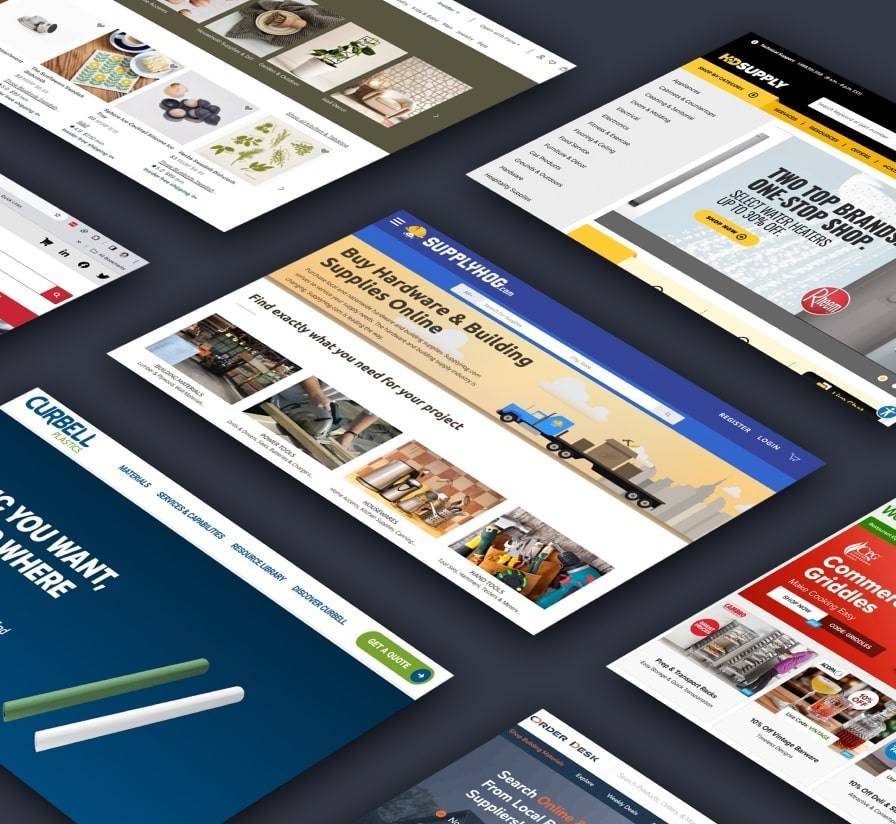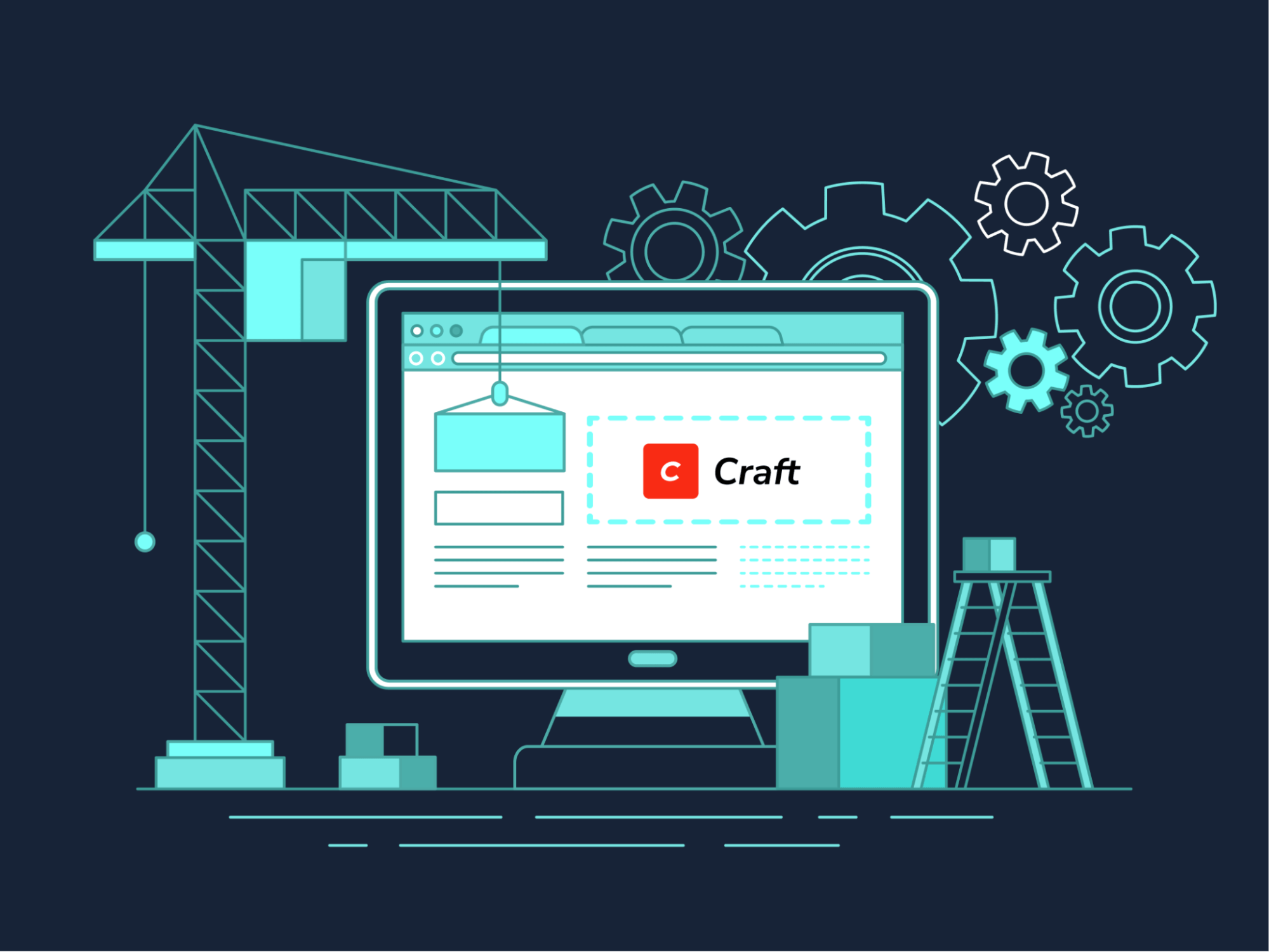

Why Craft Makes Business Sense as an Enterprise-Level CMS
Websites are much like offices and factories – they take considerable effort to maintain and renovate.
Larger businesses don’t usually do the hands-on renovations of their offices or production lines. They focus on producing great products and offering great services.
For business websites, that’s another story. Often at greater expense and less success, a company takes on the burden of website “renovations.”
Executives now must navigate the complexity of a content management system for its business website - the digital equivalent of managing everything that happens in their physical spaces.
A great content management system (CMS) should make that work easier. For various reasons, changing to a different CMS isn’t given much attention despite the possibility of finding something better.
Companies tend to stick with what’s familiar.
Just as companies shop out for quotes for insurance services, it makes sense to evaluate the existing content management system when considering a redesign, which usually happens every few years. (Side note: a well-maintained website should have a longer life than two to three years.)
Add Craft to your list of content management systems to evaluate.
Unlike popular WordPress and Drupal, Craft strikes a balance that caters to businesses' needs, aiming for a tool offering robustness for large-scale enterprises and agility for content creators and web developers.
Challenges Of Choosing The Right CMS
Choosing the right content system is critical for marketing and IT managers, each grappling with distinct challenges and needs.
Marketing professionals want a platform that combines ease of use with powerful branding, content management, and customization capabilities without getting bogged down by technical complexities.
IT managers prioritize security, performance, and scalability to ensure the CMS can support growth and protect against cyber threats.
Deciding on the perfect CMS often leads to common hurdles: intimidating complexity, restrictive customization options, sluggish performance, and security vulnerabilities, among others. These issues stifle creative expression and operational efficiency and pose significant risks and costs,
As businesses strive to stand out and scale, the need for a CMS that addresses these pain points while catering to the unique demands of marketing and IT departments has never been more critical.
Key Challenges and Pain Points for Enterprise Websites
Click a headline to explore how Craft addresses these concerns.
How Craft CMS Powers Enterprise Websites with Flexibility and Features
Craft addresses the business goals and user pain points with a comprehensive solution.
The Craft platform has features that support your business goals. Its intuitive content management system, efficient workflow management, and robust asset management make it an out-of-the-box solution for businesses looking to streamline their web operations.
To fully leverage Craft's out-of-the-box features, conduct a feature mapping exercise. Align each feature with a specific business need or goal to ensure you take advantage of every aspect of Craft.
Friendly User Experience
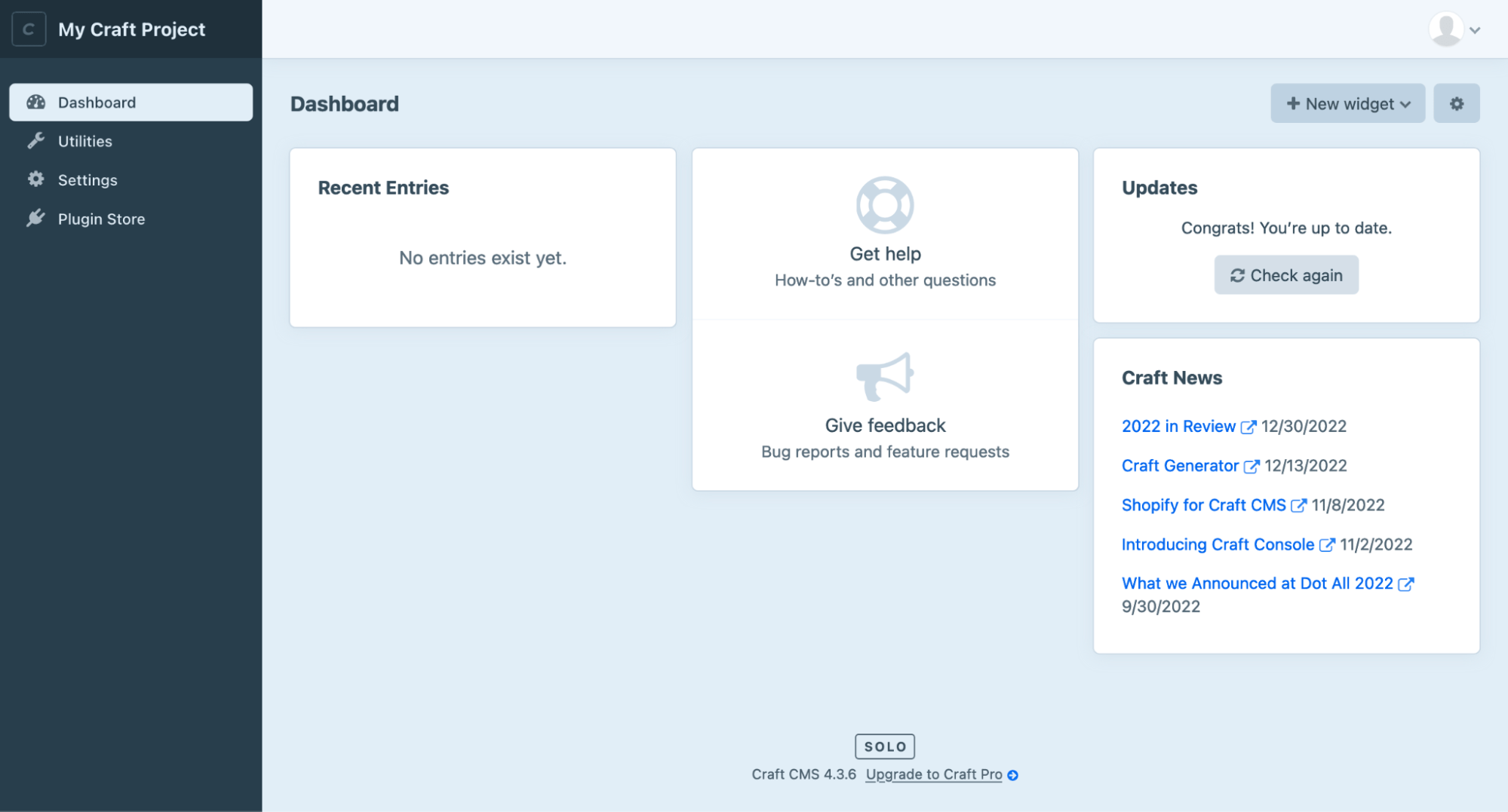
The Craft CMS Control Panel offers an intuitive interface and powerful capabilities for content editing and schema design.
Craft’s environment offers an accessible, intuitive interface combining content and design.
Built-in image editing tools reduce the need for exiting the system to use PhotoShop or other tools. That saves time.
Craft separates content from design, offering users numerous advantages. This approach simplifies production, with content editors focusing on content creation and designers on improving user experience. Separating content and design also ensures consistent branding and user experience. For example, typography, color schemes, and layout can be locked down.
This separation maximizes efficiency and results in higher-quality outcomes in content management.
Regularly train your content team with the latest CMS features and updates. A team well-versed in the nuances of the content system can significantly boost operational efficiency and content quality.
Conquering Content Chaos
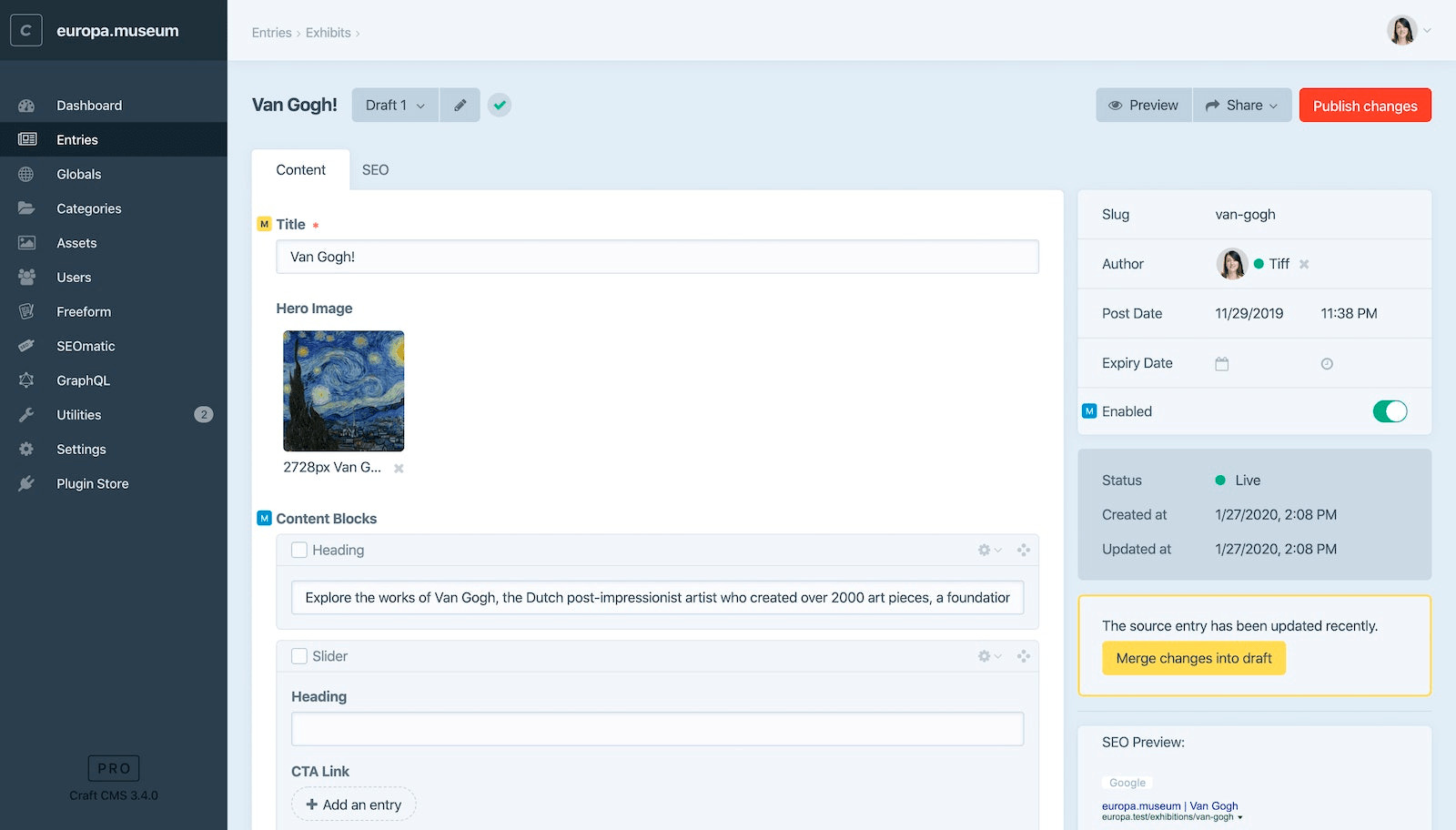
Keep track of changes with comprehensive entry draft insights, highlighting modifications and simplifying collaboration.
Managing content for even a medium-sized business can be a monumental task, like shoveling snow in an unending blizzard. Craft offers tools to maintain site order with tagging, categorizing, and search functions, creating a clearer process for businesses to organize and optimize content with workflows.
For non-technical users who are part of the editing or approval workflow, the platform reduces hand-holding with automated processes that hand-holding and increases collaboration, including live-preview for seeing how content appears before publishing Craft makes it easier for users to manage complex content ecosystems such as related articles, product collections, or hierarchical content structures. The Matrix field type, for example, allows users to create a block of content that can be rearranged and reused, offering flexibility in content presentation and layout.
High Performance Payoff
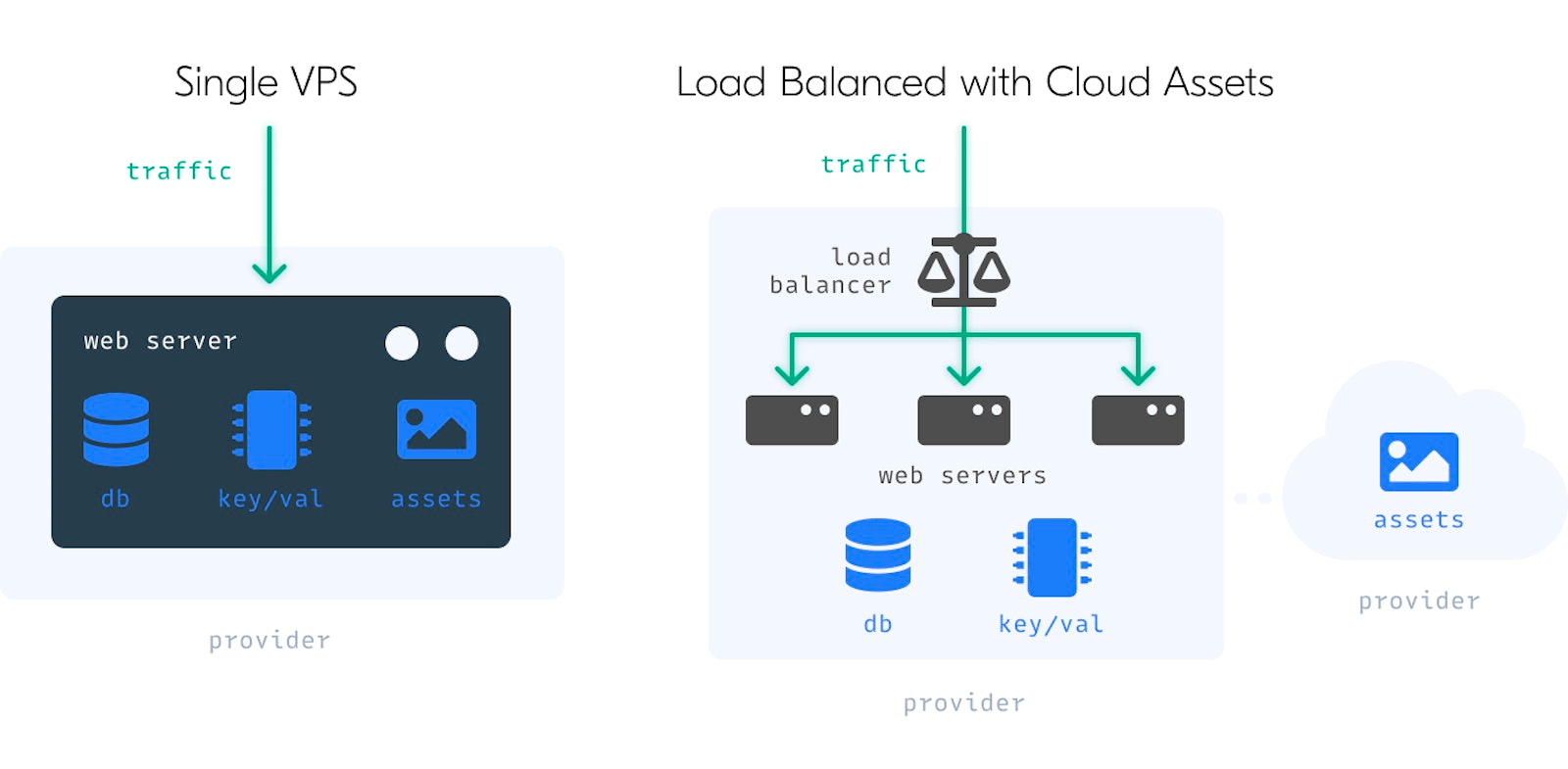
Craft's configurable settings enable efficient load balancing, ensuring the website stays responsive and scalable.
Craft CMS's performance-driven platform directly addresses key business challenges that can satisfy the IT team. Its scalability and efficient codebase ensure fast, responsive websites that can grow with your business, avoiding costly overhauls.
The developer-friendly, API-driven architecture allows for easy integration with other systems, making custom feature development and multi-site, multi-lingual management straightforward. Similar to separating content from design, Craft’s built-in headless function allows developers to deliver content across various platforms and devices via APIs. This could help businesses wanting to offer information on a business portal, intranet, mobile devices, etc. without having separate content libraries.
As your business grows, regularly audit your site's architecture. Adjust the infrastructure to scale smoothly with your increasing traffic and content demands.
Crafting a Hack-Resistant Fortress
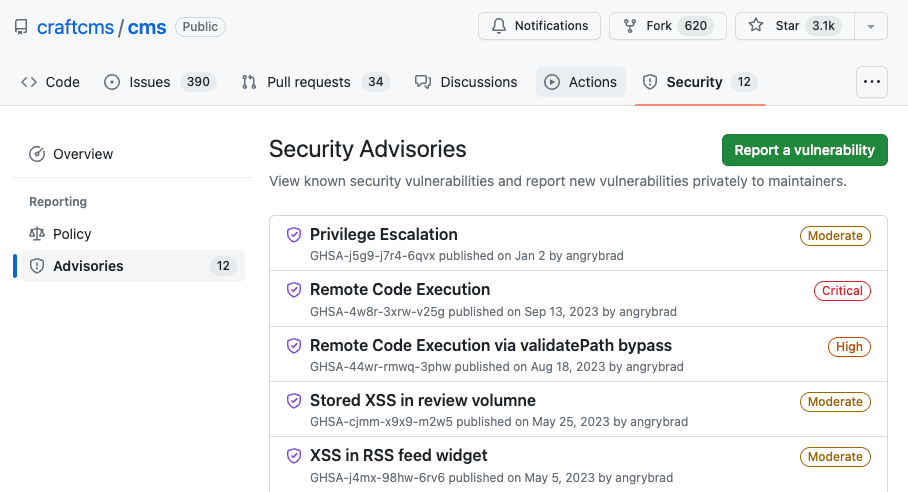
Craft CMS offers customizable vulnerability watch settings on GitHub.
Craft CMS prioritizes security with advanced features. Its comprehensive security framework includes granular user permissions, two-factor authentication for enhanced access control, and extensible measures like Cross-Site Request Forgery protection and password hashing to safeguard against various cyber threats.
The cross-site security measure prevents unauthorized commands from being transmitted from a trusted user. This safeguards against malicious web attacks. Craft ensures a fortified enterprise-level platform with stringent plugin management, often a gateway for hacking incursions, and regular security audits and updates.
Monitor CMS logs and set up intrusion detection systems to detect and respond to suspicious activities promptly.
Flexibility Meets Functionality
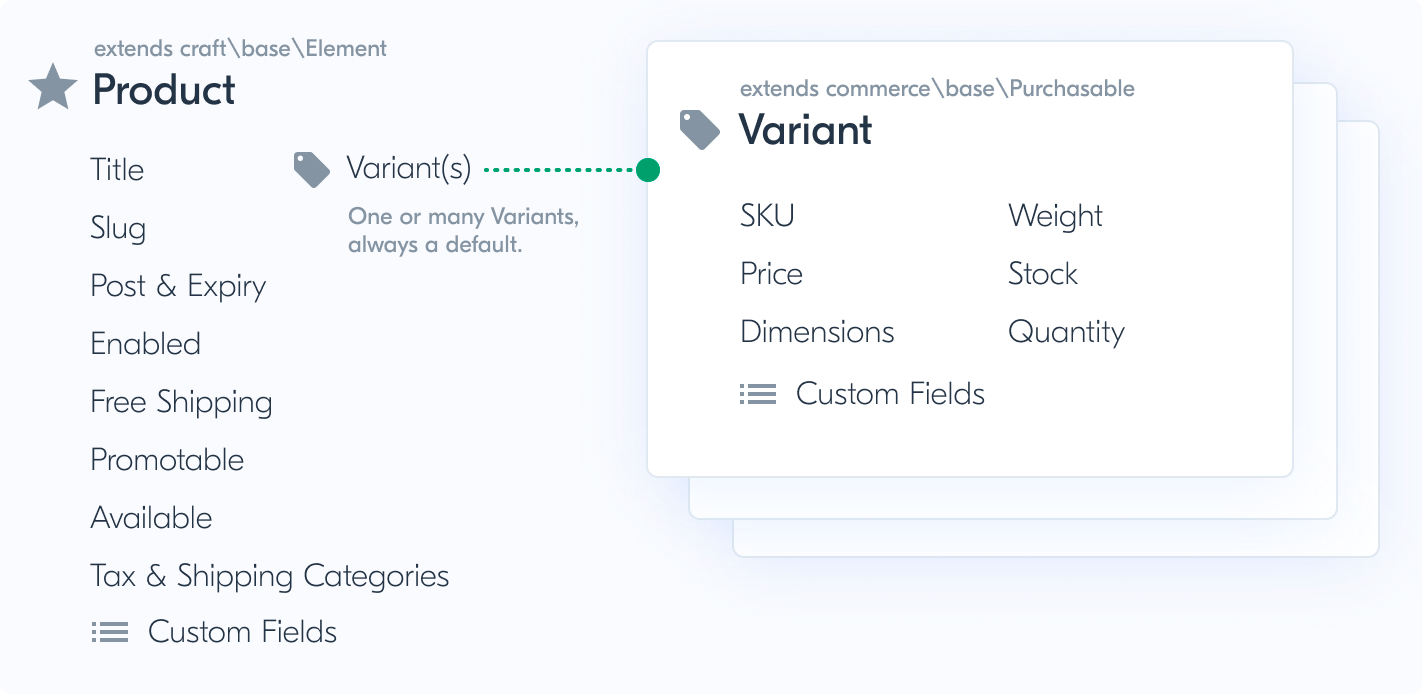
IT managers and product managers have flexibility in Craft Commerce to control common fields and variant relationships.
Craft CMS excels in offering customization and flexibility across various aspects of website management. This adaptability allows businesses to tailor the platform to their specific needs, whether for content-rich websites, e-commerce, or a combination. Its built-in support streamlines operations, removing the dependence on external plugins which can complicate or compromise website functionality and security.
Overall, Craft’s versatility in customization ensures that businesses can effectively align their website’s functionality with unique objectives, enhancing user experience and operational efficiency.
Continuously test and iterate on your website to identify areas for improvement and refine its functionality to better align with your objectives.
Support for SEO and Schema Markup
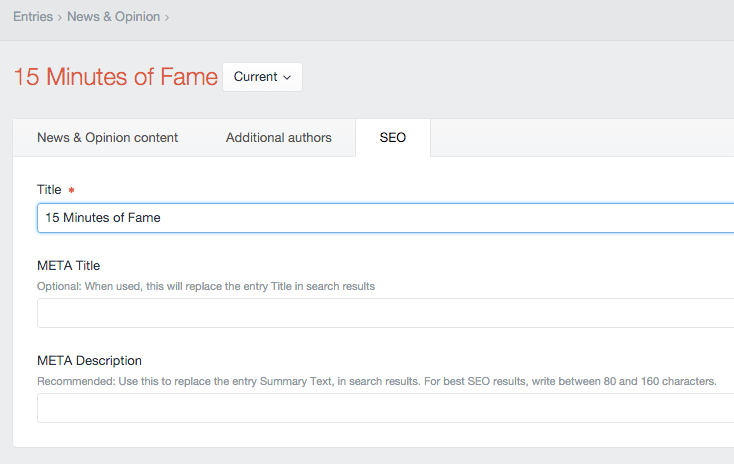
Craft CMS displays SEO control in a tab.
Craft’s SEO (search engine optimization) features address the challenges facing digital marketers and SEO professionals.
One common pain point in SEO is the need for granular control over elements like meta tags and URLs, which are crucial for improving search engine visibility and rankings. Craft CMS simplifies this with features like custom SEO fields, where users can easily customize meta titles, descriptions, and keywords to optimize each page for targeting search queries.
Additionally, Craft makes it easy to implement redirects that help maintain link equity and user experience, especially when URLs change as the site grows and new content is added.
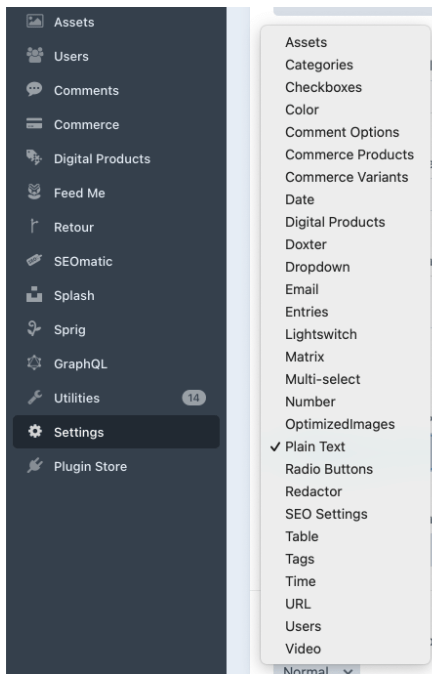
Craft offers custom field options that can support schema markup.
Structured data known as “schema markup” is pivotal for enhancing the appearance of web pages in search results, making them more informative and attractive to search users. For this, Craft offers custom field types for you to create structured data markup, which enhances search engine understanding of your pages and content.
Schema markup improves the ability for your web content to be indexed and displayed in search results. This capability is a significant advantage for businesses aiming to drive organic traffic and stand out in search results, especially as Google and other search platforms incorporate more generative AI results and featured snippets.
Often overlooked, improving the user experience leads to higher website engagement, search rankings, and conversions. Consider optimizing navigational menus and helpful, well-placed calls-to-action.
Additional Features Sets Craft Apart
Beyond the features already discussed, Craft offers tools and functionality to extend control of the content management system.
- Localization and Internationalization: Craft CMS offers extensive support for localization, allowing users to easily manage content in multiple languages and cater to different regional markets. This includes features for date, time, and number formatting based on locale.
- GraphQL API: Craft includes built-in support for GraphQL, allowing developers to query and mutate content through a powerful and flexible API. This is particularly useful for headless CMS setups and feeding content into mobile apps or other platforms.
- Plugin Ecosystem: Craft has a more curated plugin ecosystem compared to some other CMS platforms that still offer a range of add-ons that can extend and enhance core functionalities.
- Template Flexibility: Craft CMS uses the Twig templating engine, which is known for its flexibility and power, allowing for the creation of complex and highly customized front-end designs.
- Revision and Version Control: Craft CMS tracks changes to content, allowing users to easily revert to previous versions if needed.
- Integrated E-commerce: Craft Commerce is a customizable e-commerce platform exclusively designed for Craft CMS, offering features like dynamic pricing, integrated storefronts, and subscription support. This component requires an additional cost.
Brands Using Craft Websites
Companies have leveraged Craft to enhance their web presence, demonstrating its effectiveness in the enterprise arena.
Several other leading companies have chosen Craft for their websites, each tapping into a specific benefit of the CMS. For instance, Netflix has utilized Craft's robust content management capabilities, while Salesforce has leveraged its scalable architecture for its growing needs.
 Netflix: The streaming service industry requires a CMS that can handle complex content relationships to deliver content efficiently to a global audience and maintain a seamless user experience. The flexible content modeling and intuitive editing interface help Netflix manage its diverse library.
Netflix: The streaming service industry requires a CMS that can handle complex content relationships to deliver content efficiently to a global audience and maintain a seamless user experience. The flexible content modeling and intuitive editing interface help Netflix manage its diverse library.
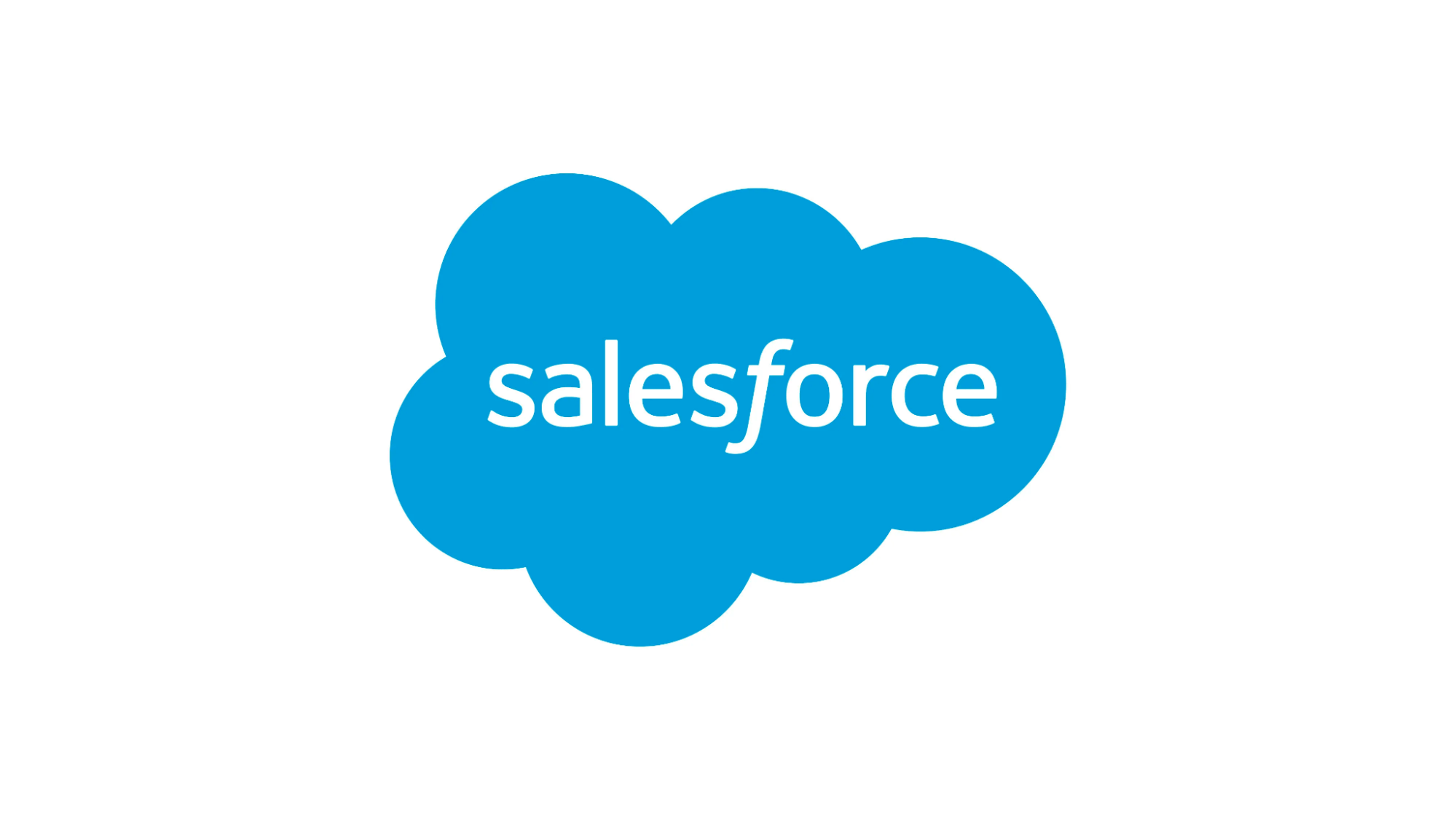 Salesforce: The global customer relationship management company depends on Craft's scalable architecture to support its dynamic and growing content needs. Scalability ensures that the company can expand its web presence without compromising performance.
Salesforce: The global customer relationship management company depends on Craft's scalable architecture to support its dynamic and growing content needs. Scalability ensures that the company can expand its web presence without compromising performance.
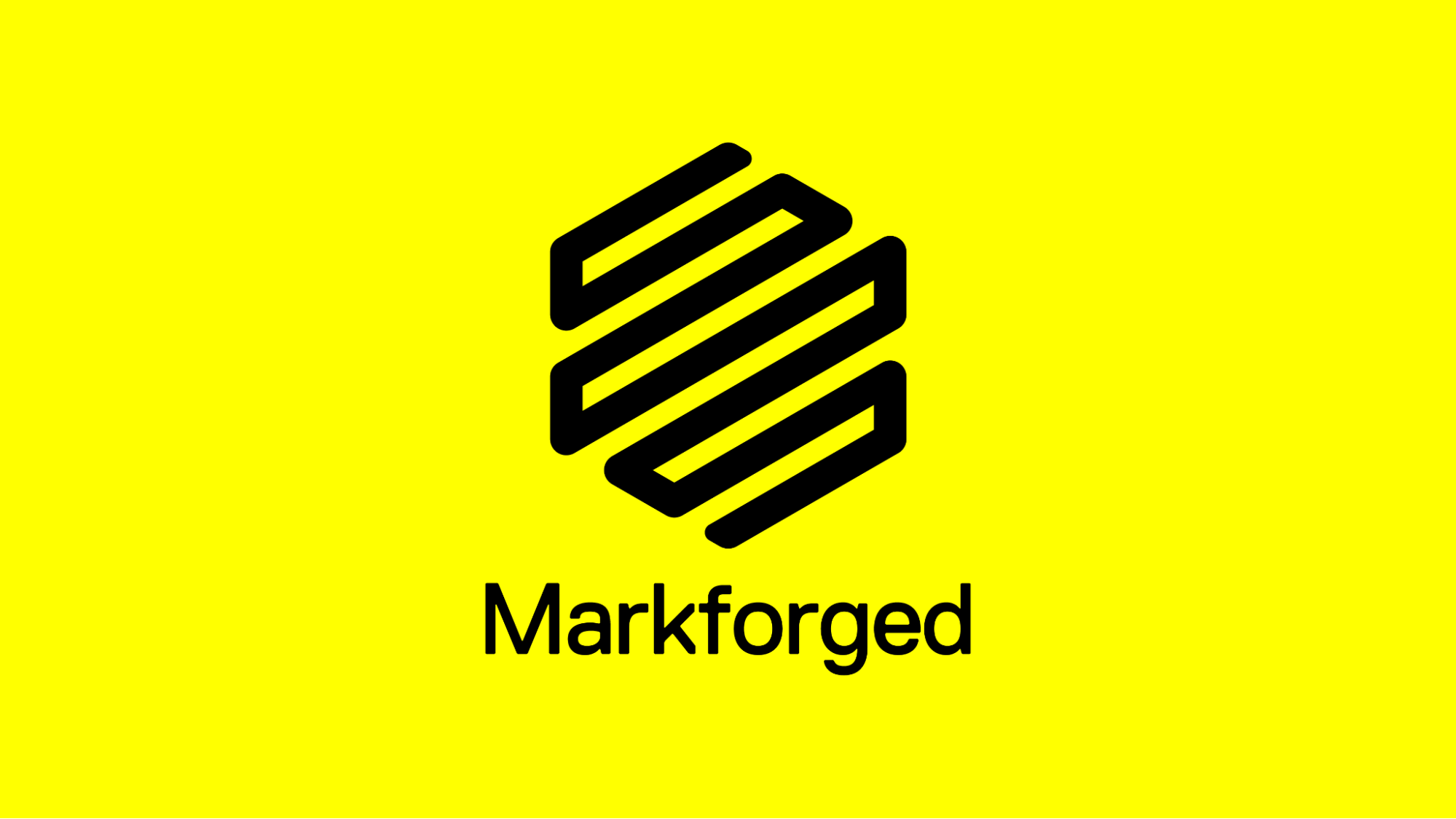 Markforged: This company specializes in industrial 3D printers, materials, and software. It uses Craft to masterfully showcase its products with ultra-sleek, dark-themed designs, high-quality graphics, and a tech-forward bold typeface. The site makes the most out of Craft, delivering high-speed desktop performance.
Markforged: This company specializes in industrial 3D printers, materials, and software. It uses Craft to masterfully showcase its products with ultra-sleek, dark-themed designs, high-quality graphics, and a tech-forward bold typeface. The site makes the most out of Craft, delivering high-speed desktop performance.
These companies have leveraged Craft to meet specific business needs to manage extensive content libraries, scale web infrastructure, or optimize for search engines.
Craft CMS Pricing
Craft CMS distinguishes itself in the CMS market with a transparent and scalable pricing model that caters to businesses of various sizes, from startups to large enterprises.
Unlike open-source platforms such as WordPress or Drupal, which can require significant customization and may incur hidden costs for plugins, themes, and security enhancements, Craft provides a more predictable cost structure.
For its basic CMS functionalities, Craft offers a free Solo plan for personal projects or small sites, which includes all the core features. However, for businesses seeking more advanced capabilities, the Pro version is available at $299 per project, which unlocks additional features such as user accounts management, multi-site support, and premium customer support.
Comparatively, major proprietary CMS platforms like Adobe Experience Manager (AEM) come with a significantly higher cost of ownership, often involving licensing fees that can run into thousands of dollars annually, in addition to requiring a more substantial initial investment in setup and customization.
Craft’s pricing model offers a middle ground, providing enterprise-level functionality, support, and scalability at a fraction of the cost of these high-end systems.
Businesses looking to include e-commerce into their sites can use Craft Commerce, a dedicated solution starting at $999 per project. This pricing includes powerful features tailored for online selling, such as flexible product management, customizable checkout processes, and integrated payment gateways.
This approach ensures that businesses not only benefit from a powerful and flexible CMS but also enjoy clear and manageable costs, avoiding the pitfalls of escalating expenses associated with open-source platforms or the prohibitive pricing of high-end proprietary systems.
Unlock Success with Craft’s Versatility
Craft CMS is more than just a content management system; it's a tool that can propel your online presence and growth. Its efficiency, security, and scalability combination make it an ideal choice for businesses to stay ahead.
Besides, Craft is also built to grow with your enterprise, helping you stay agile and responsive to market demands. Its versatility allows businesses to tailor the CMS to specific needs, using its powerful tools of add-ons and plugins.
Focusing on core competencies in business is a standard practice for success. Just as companies opt to contract out office renovations or factory upgrades to experts in construction, there's a growing realization that the same principle applies to digital spaces.
Businesses, especially larger enterprises, have historically taken on the burden of managing their website renovations and content management systems in-house. However, this approach often leads to greater expense, less success, and diversion of focus from core business activities.
Craft CMS, with solutions for enterprise-level needs, offers a compelling alternative. Its comprehensive features address the challenges faced by marketing and IT professionals, from user-unfriendliness to security vulnerabilities. Craft CMS's performance-driven platform, hack-resistant security measures, and SEO-friendly features align with the key objectives of both marketing and IT departments.
In light of these considerations, the case for outsourcing website renovations and development to a digital agency becomes abundantly clear. Just as businesses trust experts to revamp their physical spaces, they can benefit from partnering with agencies specializing in Craft CMS to navigate the complexities of digital transformation effectively.
Leveraging the expertise of DBS Interactive, businesses can unlock the potential of Craft CMS, streamline their web operations, enhance user experience, and ultimately, propel their online presence and growth. So, whether it's revamping an office layout or redesigning a website, the path to success lies in trusting the professionals who excel in their craft.
DBS Interactive specializes in developing enterprise websites with Craft. Schedule a call to discuss this platform that more companies are using to build or rebuild websites.
Compare the Craft CMS against Statamic, Wordpress, and Drupal.
